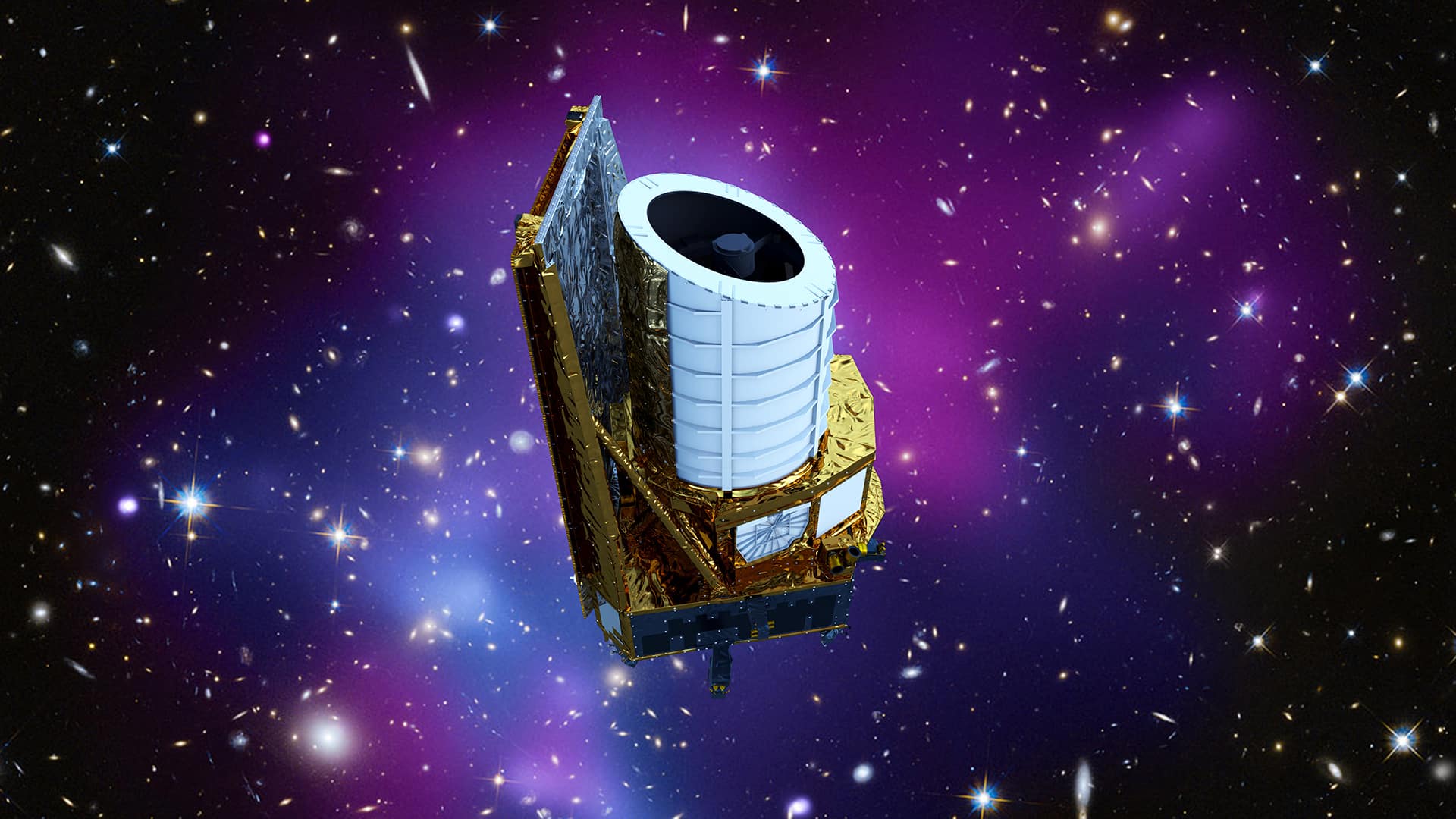About Euclid Space Telescope
- The Euclid mission is part of ESA’s Cosmic Vision programme which aims to explore the origin and components of the universe and the fundamental laws that govern it.
- Its main goal is to investigate the “dark side” of the universe, focusing on dark matter and dark energy.
- It was launched on 1 July 2023.
- It is named after the Greek mathematician Euclid of Alexandria, who lived around 300 BC and founded the subject of geometry.
- The Euclid mission will make a 3D map of the universe (with time as the third dimension) by observing billions of galaxies out to 10 billion light-years across more than a third of the sky.
- It will reveal how dark energy has influenced the stretching and separation of matter over cosmic time.
- Spacecraft and instruments:
- The Euclid spacecraft is approximately 4.7 m tall and 3.7 m in diameter. It consists of two major components: the service module and the payload module.
- The payload module comprises a 1.2-m-diameter telescope and two scientific instruments: a visible-wavelength camera (the VISible instrument, VIS) and a near-infrared camera/spectrometer (the Near-Infrared Spectrometer and Photometer, NISP).
- The service module contains the satellite systems: electric power generation and distribution, attitude control, data processing electronics, propulsion, telecommand and telemetry, and thermal control.
- Orbit: Its operational orbit will be halo around a point known as the Sun-Earth Lagrange Point 2 (L2), at an average distance of 1.5 million km beyond Earth’s orbit.
- Lifetime: Nominal mission lifetime is six years, with the possibility of extension (limited by the amount of cold gas used for propulsion).
What is Dark Energy?
- · Dark energy is the name given to the mysterious force that’s causing the rate of expansion of our universe to accelerate over time rather than to slow down.
- · It is now thought to make up 68% of everything in the universe.
- · It’s not matter or energy in the conventional sense. It does not interact with electromagnetic forces and, therefore, cannot be observed directly.
Q1) What is Dark Matter?
Dark matter is the mysterious stuff that fills the universe but no one has ever seen.Dark matter makes up over 80% of all matter in the universe.Dark matter is completely invisible. It emits no light or energy and thus cannot be detected by conventional sensors and detectors.
Source: Dark matter-hunting Euclid mission to share its 1st full-color images of the universe on Nov. 7
Last updated on February, 2026
→ UPSC Notification 2026 is now out on the official website at upsconline.nic.in.
→ UPSC IFoS Notification 2026 is now out on the official website at upsconline.nic.in.
→ UPSC Calendar 2026 has been released.
→ UPSC Final Result 2025 is expected to be released in the second week of April 2026.
→ Check out the latest UPSC Syllabus 2026 here.
→ Join Vajiram & Ravi’s Interview Guidance Programme for expert help to crack your final UPSC stage.
→ UPSC Mains Result 2025 is now out.
→ UPSC Prelims 2026 will be conducted on 24th May, 2026 & UPSC Mains 2026 will be conducted on 21st August 2026.
→ The UPSC Selection Process is of 3 stages-Prelims, Mains and Interview.
→ Prepare effectively with Vajiram & Ravi’s UPSC Prelims Test Series 2026 featuring full-length mock tests, detailed solutions, and performance analysis.
→ Enroll in Vajiram & Ravi’s UPSC Mains Test Series 2026 for structured answer writing practice, expert evaluation, and exam-oriented feedback.
→ Join Vajiram & Ravi’s Best UPSC Mentorship Program for personalized guidance, strategy planning, and one-to-one support from experienced mentors.
→ Check UPSC Marksheet 2024 Here.
→ UPSC Toppers List 2024 is released now. Shakti Dubey is UPSC AIR 1 2024 Topper.
→ Also check Best UPSC Coaching in India




















